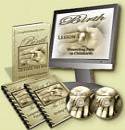Placenta Accreta, Increta & Percreta
Placenta accreta, increta and percreta result from inappropriate placental attachments. In placenta acreta, the placenta attaches too firmly and deeply into the uterine wall. In placenta increta, the attachment is much deeper into the wall, preventing easy separation after birth. In placenta percreta, the placenta attaches right through or beyond the uterus, invading sometimes to other internal organs, most commonly the bladder.
Symptoms
In all cases, symptoms are similar to those of placenta previa and placental abruption, including late term vaginal bleeding and preterm delivery of the baby.
Complications
The largest complication of these conditions is that the placenta does not readily detach from the uterine wall and will usually require surgical removal. This can lead to no other choice than hysterectomy, although increasingly other procedures are attempted to prevent the removal of the uterus.
Rates
of Occurence
These placental complications occur in about 1 of 2,500 pregnancies.
Can I STILL have a natural birth?
This will depend on many factors, including the severity, gestational age, and severity of the disorder. In many cases, a c-section will be scheduled in an attempt to preserve the mother's future fertility, in which case a c-cesarean is a small price to pay for the ability to have more children in the future.
References
Carroli G, Bergel E. Umbilical vein injection for management of retained placenta. Cochrane Database of Systematic Reviews 2001, Issue 4. Art. No.: CD001337. DOI: 10.1002/14651858.CD001337.
Peña-Martí G, Comunián-Carrasco G. Fundal pressure versus controlled cord traction as part of the active management of the third stage of labour. Cochrane Database of Systematic Reviews 2007, Issue 4. Art. No.: CD005462. DOI: 10.1002/14651858.CD005462.pub2.
Prendiville WJ, Elbourne D, McDonald S. Active versus expectant management in the third stage of labour. Cochrane Database of Systematic Reviews 2000, Issue 3. Art. No.: CD000007. DOI: 10.1002/14651858.CD000007.
Return from Placenta Accreta to Placenta Problems
Return to Giving Birth Naturally Home
Page Last Modified by Catherine Beier, MS, CBE
Most Popular
How to Use Acupressure to Induce Labor
Childbirth Relaxation Script MP3s
Nutrition During Pregnancy - Nix the Notion of Eating for Two
Looking for a Birth Professional? Search our Provider Directory
Online Childbirth Classes
Choose 7 week, 12 week, or Self- Paced online childbirth classes available wherever and whenever you need them.
Featured Birth Story
Vanessa's natural birth story shows that when birth is left alone to proceed as it should, it waits for no one - not even doctors or midwives.
Free Pregnancy Tickers
Create a free pregnancy ticker to post on your blog, website, Facebook profile or favorite social media...




